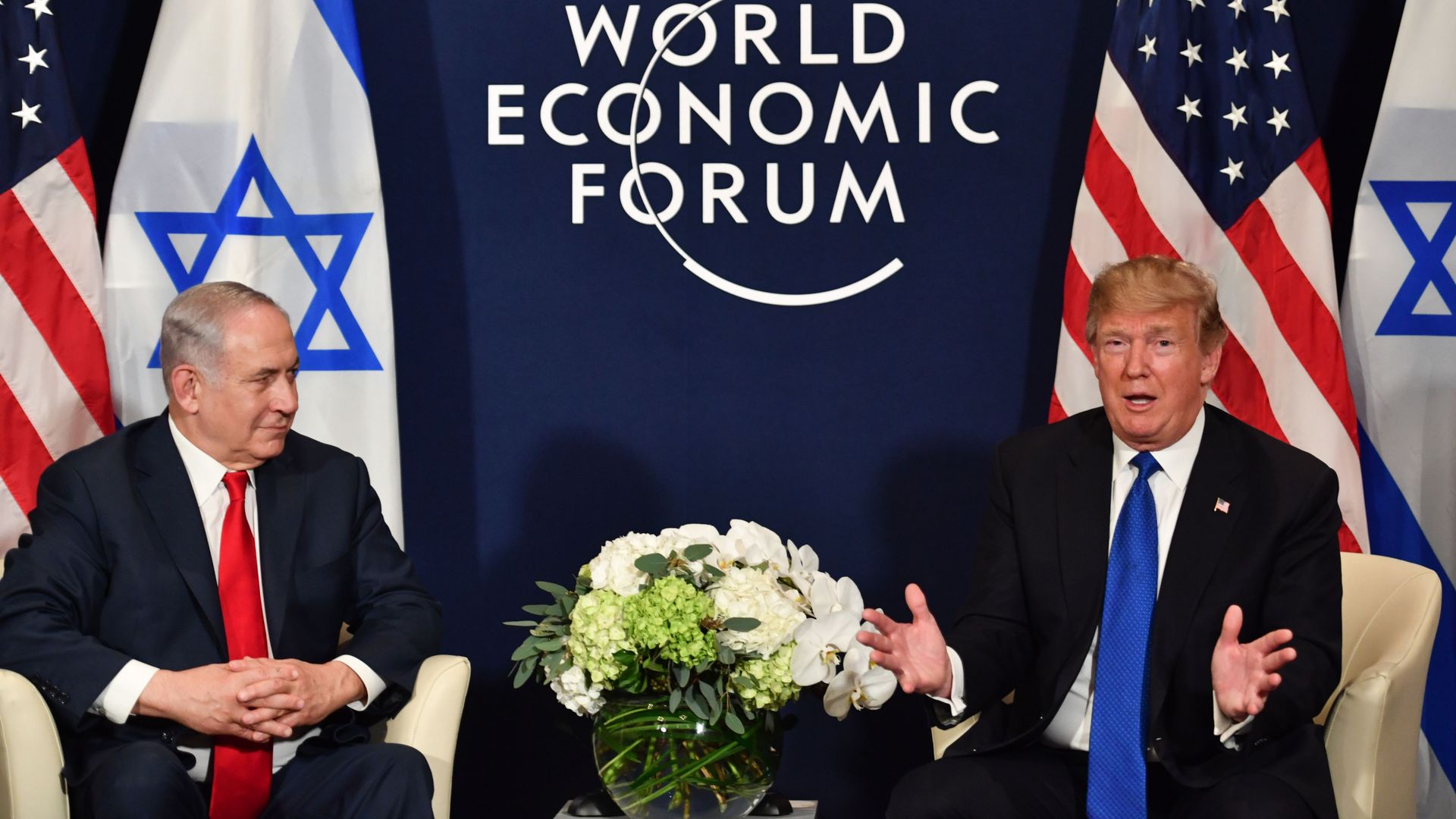Why Trump's Jerusalem remarks could threaten Mideast peace plan
Add Axios as your preferred source to
see more of our stories on Google.

Trump and Netanyahu talk before their meeting in Davos on Thursday. Photo: Nicholas Kamm / AFP / Getty Images
President Trump's statements about Palestinian leadership — and Jerusalem — at his meeting in Davos today with Israeli Prime Minister Benjamin Netanyahu showed the seriousness of the crisis between the U.S. and the Palestinians. And they were further evidence that the "peace plan" the White House was working on for the past year is in serious risk of dying.
Why it matters: It is hard to overstate how important and sensitive the Jerusalem issue is for both Israelis and Palestinians. If Jerusalem is off the negotiating table, as some understood from Trump's statements today, it means the "ultimate deal" he is trying to achieve is off the table. There is not one living Palestinian who will agree to sign a peace deal with Israel without having the capital of Palestine in East Jerusalem.
Where it stands: Trump went on an all out attack against the Palestinians:
- He said Israel wants to make peace while the Palestinians don't. He added: "They're going to have to want to make peace, too, or we're going to have nothing to do with it any longer."
- He threatened to cut more U.S. aid to the Palestinian Authority unless President Mahmoud Abbas goes back to peace talks with Israel.
- A few minutes after Trump finished his statement in Davos, his U.S. envoy to the United Nations, Nikki Haley, joined him in attacking Abbas in her speech at the U.N. Security council in New York. Haley said Abbas lacks "courage and the will" to make peace with Israel.
But the main points Trump made were about Jerusalem:
- He said that by recognizing Jerusalem as the capital of Israel, he took "the hardest subject" in any peace negotiations between Israel and the Palestinians "off the table" and "we don’t have to talk about it anymore."
- Netanyahu was very happy and satisfied by Trump's remarks. "Trump made some things in the negotiations clear — like Jerusalem — and left other issues open and unclear" for future talks, he said. "We are waiting for him to put forward his peace plan and we are ready to engage … but the Palestinians are looking for excuses to run away from the peace talks."
- Abbas's spokesman issued a statement criticizing Trump's remarks: "If Jerusalem is off the negotiations table then the U.S. will be off the negotiations table."
- Senior White House officials told me after Trump's statement today that I was misreading it and that what the president said is not going to impact final status negotiations on Jerusalem. The officials said Trump referred to the fact that the "high level concept of Jerusalem as Israel's capital" was off the table.
Behind the scenes: In the weeks since the Jerusalem announcement, Trump's senior adviser, Jared Kushner, and special envoy Jason Greenblatt — and even Vice President Mike Pence — were trying to get the message across to the Palestinians, both in public and in private through third parties, that it's worth giving a chance to their peace plan and not rejecting it out of hand.
The bottom line: But in the current dynamic of ongoing escalation in threats and rhetoric between the Trump administration and the Palestinians, all the hard work Kushner and Greenblatt have done in the last year is at a risk of going down the drain.
